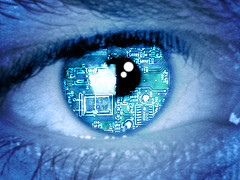by: Shane McGlaun

School district remotely activated webcams of school laptops in student's homes
The use of technology in classrooms around the country is a great thing. Students often find learning much easier and more enjoyable when computers are integrated into the classroom curriculum. Sometimes that same technology can also have serious consequences for students and school districts.
The FBI has officially announced that it is probing a case in which a Pennsylvania school district allegedly activated webcams of school provided laptops that were in use in student's homes without prior consent or warning. The FBI is investigating to determine if the school broke federal wiretap or computer intrusion laws according to an official close to the case.
The FBI became involved in the case when a student and his family filed suit against the Lower Merion school district after the student was allegedly told by school vice principal Lindy Matsko that he was "engaged in improper behavior in his home" with Matsko citing evidence of a photo "embedded" in the student's laptop.
“They’re trying to allege that when Blake was holding two Mike & Ikes in his hand, which he apparently loves and eats religiously, that those were pills, and somehow he’s involved in selling drugs,” said the family's attorney, Mark Haltzman.
The district issued Apple laptops to all 2,300 students at two high schools within the district. School officials maintain that the remote activation of webcams is a security feature and is only used to find lost or stolen laptops. According to the district, webcams have been activated remotely 42 times over the last 14 months – 28 laptops have been recovered using the system.
The students reportedly signed documents at school to receive the laptops stating that the webcams could be remotely activated, but the families of the students were not notified. Since the suit was filed, the district reports that it has discontinued the practice of activating webcams.
District spokesman Doug Young, "It's clear what was in place [to notify parents] was insufficient, and that's unacceptable."
Ari Schwartz, vice president at the Center for Democracy and Technology, wondered, "What about the (potential) abuse of power from higher ups, trying to find out more information about the head of the PTA? If you don't think about the privacy and security consequences of using this kind of technology, you run into problems."
Witold Walczak, legal director for the American Civil Liberties Union of Pennsylvania hit the nail on the head when he said, "This is an age where kids explore their sexuality, so there's a lot of that going on in the [kid's] room. This is fodder for child porn."




